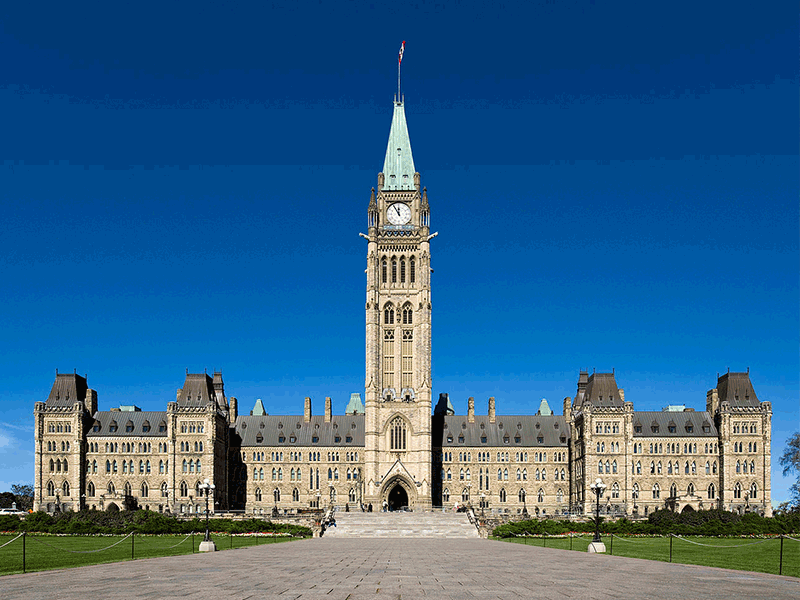Rabbi Adam Cutler
Beth Tzedec Congregation, Toronto
Rabbi Michael Dolgin
Temple Sinai Congregation, Toronto
Rabbi Dolgin: This summer marks a year since assent was given to Bill C-14, changing Canadian law to allow for medical assistance in dying (MAID). Disagreement continues in our country, and within the Jewish community, on the proper scope and nature of such a law, for those who support this alternative at all.
However, I noted a rare moment occurred during the discussion about MAID, as all rabbis who addressed the issue agreed on at least two things. First, the issue of providing proper palliative care to those in need is a much more common issue and is not being addressed adequately in our current system of health care. Second, it is at least as urgent to provide for the end-of-life needs of most patients and families as it is to provide for the small percentage who might seek to access MAID.
For those of us who serve in congregations, or as chaplains in hospitals and nursing homes and other facilities, the shortfall in palliative care options and resources is obvious. Nevertheless, we rabbis and the communities we serve seem to have lost our ability or desire to focus on this issue. While I do support a strictly limited mandate for MAID, I worry that we are failing to live up to the ethics of our tradition in urging our society to support patients and their families during their last moments here with us.
Rabbi Cutler: MAID has indeed reinvigorated the conversation around what it means to die with dignity, including what resources are required to provide adequate, honourable care to individuals for whom active medical interventions are unlikely to provide any meaningful recovery. It is not a legal question of whether or not a physician may actively support a patient’s wish to die, but rather what percentage of a health-care budget should be devoted to palliative care, recognizing that more money spent on this area necessarily means, at least in the short run, less money spent on others.
‘we rabbis and the communities we serve seem to have lost our ability or desire to focus on this issue’
For me, the Jewish question is: how do we prioritize among individuals of all ages and stages of life with many medical needs and limited resources? At the same time, how do we campaign not against something concrete – MAID – but for something more elusive yet equally, if not more, important – increased funding for palliative care?
Rabbi Dolgin: The number of people who live into their 90s and beyond the century mark is noticeably higher than it was only 20 years ago. Can we continue to wish people that they live until 120? As a society, we should work to make certain that “Biz hundert un tzvantzig” is still a blessing.
However, speeches and articles will not make the difference. When it comes to social issues with great personal impact, we must be active and organized. Rabbis do not have the expertise to address complex end-of-life issues, but we are acquainted with those who do.
Must today’s rabbi be a community organizer or is it adequate to inspire others to take up a cause?
READ: FIRST CANADIAN LAW SCHOOL PARTICIPATES IN ITREK TRIP TO ISRAEL
Rabbi Cutler: I think often of the words of Hillel. In Pirkei Avot 2:5, he teaches, “In a place where there is no man, strive to be a man.” If a societal need is not being met, it is upon you to take action. Conversely, if one or more people are already effectively addressing a communal concern, then you are free to focus your energies elsewhere.
No rabbi can do everything. Most of the time, through our words, we are able to support ideas and projects we believe are meaningful and important to us as Jews, while leaving the actual work to others. If, however, we find a cause of importance that is not being effectively addressed, then rabbis, like all Jews, may be obligated to take up the mantle and move from speeches to action.
It must also be noted that a rabbi’s mere presence can often lend tremendous credibility and moral weight to a cause. Martin Luther King Jr.’s march from Selma to Montgomery, Alabama, would have happened whether or not Rabbi Abraham Joshua Heschel participated. Yet, his presence bolstered the event’s impact and ability to make change. Such influence, even if it has diminished since Rabbi Heschel’s days, must be used with intention and great care.
